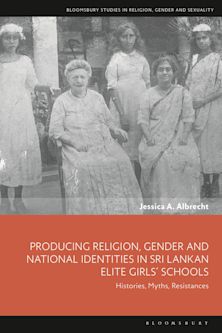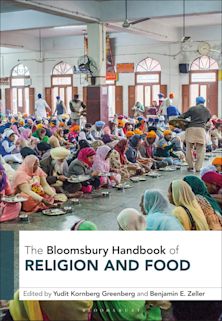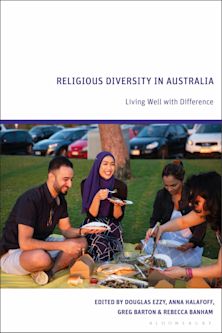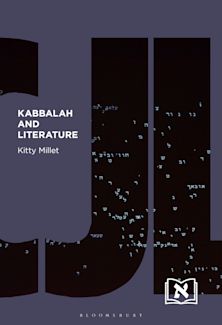- Home
- ACADEMIC
- Religious Studies
- Comparative Religions
- Three Testaments
Three Testaments
Torah, Gospel, and Quran
Three Testaments
Torah, Gospel, and Quran
For information on how we process your data, read our Privacy Policy
Thank you. We will email you when this book is available to order
You must sign in to add this item to your wishlist. Please sign in or create an account
Description
From disagreement over an Islamic Center in New York to clashes between Christians and Muslims in Egypt, tension between the three Abrahamic faiths often runs high. Yet for all their differences, these three traditions—Judaism, Islam, and Christianity—share much in common. Three Testaments brings together for the first time the text of the Torah, the New Testament, and the Quran, so that readers can explore for themselves the connections, as well as the points of departure, between the three faiths.
Notable religion scholars provide accessible introductions to each tradition, and commentary from editor Brian Arthur Brown explores how the three faiths may draw similarities from the ancient Zoroastrian tradition. This powerful book provides a much-needed interfaith perspective on key sacred texts.
Table of Contents
Prologue: The People of the Book
Book One: Torah
Preface by Ellen Frankel
Chapter 1: Also Sprach Zarathustra
Chapter 2: Monotheism
Chapter 3: Zoroaster and Zorobabel
Chapter 4: Israel’s Redeemer
Introduction to the Torah by Marc Brettler
Translator’s Notes by David Stein
Torah Text: TheTanakh
Book Two: Gospel
Preface by Henry Carrigan
Chapter 5: Gospel and Torah
Chapter 6: Gospel and Wisdom
Chapter 7: Gospel and Avesta
Chapter 8: Gospel and Quran
Introduction to the Gospel by David Bruce
Translator’s Notes by Joe Dearborn
Gospel Text: The Inclusive Bible
Book Three: Quran
Preface by Laleh Bakhtiar
Chapter 9: Zoroastrians in the Quran
Chapter 10: Torah in the Quran
Chapter 11: Gospel in the Quran
Chapter 12: Avesta in the Quran
Introduction to the Quran by Nevin Reda
Translator’s Notes by Laleh Bakhtiar
Quran Text: The Sublime Quran
Epilogue The Book of the People
Product details
| Published | Jul 30 2012 |
|---|---|
| Format | Ebook (PDF) |
| Edition | 1st |
| Extent | 656 |
| ISBN | 9798765181751 |
| Imprint | Rowman & Littlefield Publishers |
| Publisher | Bloomsbury Publishing |
About the contributors
Reviews
-
This work brings together in one volume scholarly and gender-inclusive translations and interpretations of Judaism’s Torah, Christianity’s New Testament, and Islam’s Qur’an. Each scriptural text is preceded by introductory and scholarly essays, often exploring the relationship of one to the other two. In addition, attention is given to the possible encounter of these three traditions with Zoroastrianism, thereby adding unique content. Intimately connected, the sacred scriptures of Judaism, Christianity, and Islam are “possibly the most spiritually significant trilogy in the history of literature.” This work not only introduces each scriptural text but also serves as a foundation for greater understanding among the three traditions. Recommended for theological, academic, and large public libraries.
Booklist
-
Brown (Noah’s Other Son), a United Church of Canada minister, was surprised that the sacred scriptures of Judaism, Christianity, and Islam are not usually included in a single volume. He includes all three here, emphasizing the common ground among these monotheistic religions and their texts. As editor, he utilizes reputable scholars from the three religious traditions to give introductory information on the sacred texts as well as providing commentary. In particular, he emphasizes the ways in which Zoroastrianism influenced all these sacred writings. It is curious that Brown includes the entirety of the New Testament and the Quran but only the first five books (Torah) of the Hebrew Bible. Nonetheless, what is here is useful for comparative analysis as persons from each tradition may not have read the other texts or studied them as is possible here. VERDICT General readers and undergraduates with an interest in these monotheistic religions and their sacred writings will find this book to be very helpful.
Library Journal
-
That's the premise behind Three Testaments: Torah, Gospel and Quran. Brown has assembled Muslim, Christian and Jewish scholars to introduce modern, readable translations of the three texts. The scholars explain how the holy books of each community are used and understood withing the faith they represent.
The Catholic Register
-
This volume presents together in English the texts of the Torah (Genesis through Deuteronomy), the NT, and the Quran, inviting the reader to examine the interdependence of the Scriptures that are central to Jews, Christians, and Muslims. Also included are supplementary essays on possible relationships with other religious traditions. After an eight-page prologue on the people of the book by Brown and a preface to the Torah by E. Frankel, there are essays by Brown on “Also Sprach Zarathustra,” monotheism, from Zoroaster to Zorobabel, and Israel’s Redeemer; an introduction to the Torah by M. Z. Brettler; and the text according to The Contemporary Torah. Next after a preface to the Gospel by H. L. Carrigan, there are essays by Brown on Gospel and Torah, Gospel and Wisdom, Gospel and Avesta, and Gospel and Quran; an introduction to the Gospel by D. Bruce; and the text according to The Inclusive Bible. Then after a preface to the sublime Quran by L. Bakhtiar, there are essays by Brown on Zoroastrians in the Quran, Torah in the Quran, Gospel in the Quran, and Avesta in the Quran; an introduction to the Quran by N. Reda; and the text according to The Sublime Quran.
New Testament Abstracts
-
This is an unusual, ambitious, and groundbreaking book that seeks to discover the threads that connect the sacred texts of Judaism, Christianity, and Islam.
The Bible Today
-
From disagreement over an Islamic Center in New York to clashes between Christians and Muslims in Egypt, tension between the three Abrahamic faiths often runs high. Three Testaments brings together the text of the Torah, the New Testament, and the Quran, so that readers can explore for themselves the connections, as well as the points of departure, between Judaism, Islam, and Christianity. Notable religion scholars (Laleh Bakhtiar, Marc Zvi Brettler, David Bruce, Henry Carrigan, Ellen Frankel, and Nevin Reda) provide accessible introductions to each tradition. Commentary from editor Brian Arthur Brown explores how the three faiths may draw similarities from the ancient Zoroastrian tradition. This new paperback edition of the 2012 volume provides a much-needed interfaith perspective on key sacred texts.
Interpretation: A Journal of Bible and Theology

ONLINE RESOURCES
Bloomsbury Collections
This book is available on Bloomsbury Collections where your library has access.



































